brenda yang
Hi there! I'm a curious human, researcher, and educator committed to answering interesting questions, building community, and designing thoughtfully. I earned my PhD in cognitive psychology from Duke University in 2021.
Research
I was advised by Elizabeth Marsh. I also collaborate with Felipe De Brigard and Bridgette Martin Hard. My primary research questions are:
- How do we remember events and people from fiction?
- What shapes misinformation and false belief?
- What are the consequences of deceptive visualizations?
- What can psychology and education learn from each other?
More below.
Narrative fiction
“For surely it is a magical thing for a handful of words, artfully arranged, to stop time. To conjure a place, a person, a situation, in all its specificity and dimensions. To affect us and alter us, as profoundly as real people and things do.”
The landscape of our memories is constructed from more than things that really happened. We also imagine worlds that never existed and people we've never met. I am fascinated by how and why we consume, remember, and share works of narrative fiction (such as books, movies, and TV shows). My work explores the ways that memories of fiction can be considered part of the autobiographical record.
Selected work
- Yang, B.W., Deffler, S.A., & Marsh, E.J. (in press). A Comparison of Memories of Fiction and Autobiographical Memories. Journal of Experimental Psychology: General. psyarxiv.com/58kpb
- Yang, B.W. (2021) Fiction as Autobiography: Characterizing the Phenomenology and Functions of Memories of Narrative Fiction. Dissertation submitted in partial fulfillment of the requirements for a PhD at the Department of Psychology and Neuroscience at Duke University. [PDF, Defense]
- Marsh, E.J., & Yang, B.W. (2020). Broadening the Autobiographical Record: The Roles of Borrowed Memories and Memories of Fictional Events. Invited chapter in A. M. Cleary and B. L. Schwartz (Eds.) Memory Quirks: The Study of Odd Phenomena in Memory.
- Yang, B.W., Deffler, S.A. & Marsh, E.J. (2018). Fiction As Autobiography: Phenomenological Characteristics of Memories of Fiction. Poster presented at the Annual Meeting of the Psychonomic Society. New Orleans, LA. osf.io/259fv
- Yang, B.W. (2018). Fiction as Autobiography. Thesis submitted for the completion of the Duke Psychology and Neuroscience departent preliminary exam. thesiscommons.org/th6j2
Misinformation & belief
How do we decide what to believe and remember? We consider novel forces that shape belief, including asymmetries in believing and unbelieving, the impermanance of qualifying language, and the weak contributions of reasons in changing people's minds. We also summarize findings from cognitive science, such as the theme that we are easily swayed by cognitive shortcuts and prior beliefs, for interdisciplinary audiences.
Selected work
- Marsh, E.J. & Yang, B.W. (2017). A Call to Think Broadly about Information Literacy. Journal of Applied Research in Memory and Cognition. doi.org/10.1016/j.jarmac.2017.09.012
- Marsh, E.J., & Yang, B.W. (2018). Believing Things That Are Not True: A Cognitive Science Perspective on Misinformation. In B. G. Southwell, E. A. Thorson, & L. Sheble (Eds.), Misinformation and Mass Audiences. Austin: University of Texas Press. PDF. [PDF]
- Stanley, M.L., Yang, B.W., & Marsh, E.J. (2018). When the Unlikely Becomes Likely: Qualifying Language Does Not Influence Later Truth Judgments. Journal of Applied Research in Memory and Cognition.
- Stanley, M.L., Henne, P., Yang, B.W. & De Brigard, F. (2019). Resistance to Position Change, Motivated Reasoning, and Polarization. Political Behavior.
- Stanley, M.L.*, Yang, B.W.*, & Marsh, E.J. (R&R at Journal of Memory and Language). Asymmetries in Belief Revision.
Data visualization
How can graphs mislead? We have largely ignored the potential contributions of graphs in generating and propagating misinformation. I am excited to say our research on this topic has only just begun. So far, we've focused on the effect of vertical axis truncation in bar graphs.
This project was spearheaded by Camila Vargas Restrepo when she was an undergraduate honors student in the Marsh Memory lab.
Selected work
- Yang, B.W.*, Vargas Restrepo, C.*, Stanley, M.L., & Marsh, E.J. (2021). Truncating Bar Graphs Persistently Misleads Viewers. Journal of Applied Memory and Cognition. psyarxiv.com/7aq4h
- Yang, B.W., Restrepo-Vargas, C., Marsh, E.J. (2019) Judgments of deceptive visualizations. Talk presented at the Society for Applied Memory and Cognition. Cape Cod, MA. osf.io/ebpf2
- Restrepo-Vargas, C. (2018) Judgments of Deceptive Bar Graphs. Data blitz presented at the North Carolina Cognition Conference. Chapel Hill, NC. osf.io/rbtne
- Restrepo-Vargas, C., Yang, B.W., Marsh, E.J. (2018) Judgments of Deceptive Bar Graphs. Poster presented at the Duke University Visible Thinking conference. Durham, NC. osf.io/k75jt
Education
The business of learning and remembering is central to classrooms. Thus, one line of my work explores how the science of learning can be adapted and shared to students and teachers. I also work with Bridgette Martin Hard to study the scholarship of teaching and learning, merging excellent pedagogy with research on how best to teach and support students.
Selected work
- Yang, B.W., Razo, J., & Persky, A.M. (2019). Testing as a Learning Tool. American Journal of Pharmaceutical Education. [PDF]
- Yang, B.W., Blondel, D.V., Rosenberg, J., Sansone, A., Linennbrink-Garcia, L., & Schwarz-Bloom, R.D. (2017). The Rex virtual experiment platform: Design, implementation, and effects on situational interest. Poster presented at the Annual Meeting of the Society for Neuroscience. Washington, DC. [View]
- Blondel, D.V., Rosenberg, J., Sansone, A., Godin, E.A., Yang, B.W., Jaglom-Kurtz, L.T., Linennbrink-Garcia, L., Schwartz-Bloom, R.D (2019). Development of an Online Experiment Platform for High School Biology. Journal of Formative Design in Learning. [View]
- Yang, B.W.* & Bejjani, C.* (2018). Developing An Implicit Measure of Intelligence Mindset. Talk presented at the Duke University BRITE Ideas Talk Series. Durham, NC. [View]
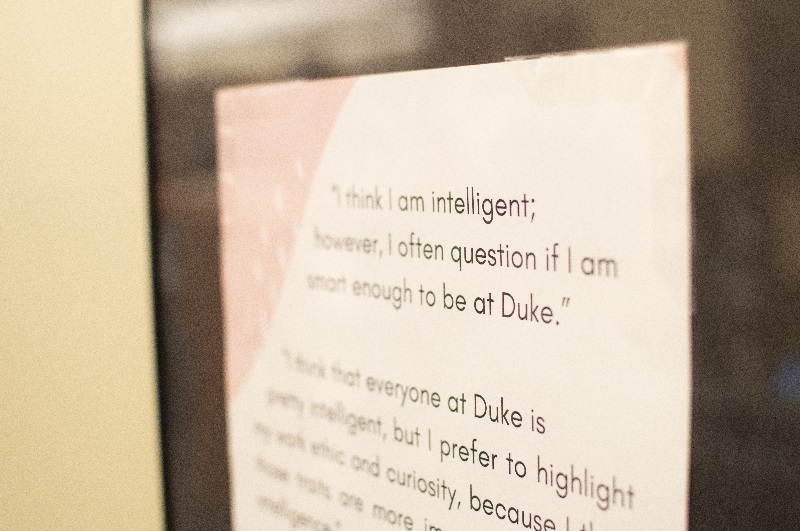
Teaching
“Liberating education consists in acts of cognition, not transferals of information.”
I came to graduate school by way of being an educator. My teaching style is intentional, reflective, innovative, and joyful. I am experienced in developing student-centered curriculum differentiated for a wide range of skills, and centering classroom instruction on the lived realities of students. I am always seeking ways to grow. My goal in teaching is always to help students reveal their own potential to themselves.
I won the Duke University's Dean's Award for Excellence in Teaching in 2020.
Selected positions
-
Life Science Teacher, PUC Community Charter Early College High School
2012 - 2015
I taught Anatomy & Physiology and Biology courses, developing and executing innovative, inquiry-based curricula. View student feedback from 2015.
-
Cognitive Psychology Teacher, Center for Talented Youth
2015
I developed and led an intensive (7 hours a day for 3 weeks), college-level cognitive psychology course for gifted youth grades 7 - 12. Students wrote extensively, researched and debated linguistic relativism, and wrote & illustrated a book of colloquially answered cognitive neuroscience "What if?" questions. View student feedback.
-
Teaching Assistant, Duke University
2015 - 2017
I served as a TA for Ruth Day (Psy102 Cognitive Psychology) and Mark Leary (Psy104 Personality Psychology).
-
Course Coordinator, Duke University
2018 - 2019
I voluntered to coordinate two semesters of Introduction to Psychology (Psy101), along with Paula Yust. This included mentorship of 14 undergraduate teaching fellows (including observations and written feedback), developing formative and summative assessments, and managing communication with students.
-
Adjunct Faculty, Elon University
Fall 2019
I designed and taught Cognitive Psychology (Psy242). This course contained a lab component and enrolled 24 students. Students wrote science communication pieces. View student perceptions of teaching: full report, with comparative info.
From students
- You were one of my most influential professors I have ever had here at Elon. I admire your love for what you do and how eager you were to understand the students you were teaching. (Elon student)
- It was actually a class I would look forward to going to... and it even caused me to have discussions with my non-psych major friends afterwards about concepts. Each powerpoint, in class activity, lab, and assignment was very well thought out, but also engaging. Most importantly, your enthusiasm for the subject and dedication to educating us made this class one of my favorites I have ever taken. The classroom was such a comfortable environment, right from stepping inside of it. Before starting Cognitive Psych, I viewed it more as a major requirement, but I can honestly say that this class has changed the way I think, and I know from talking to classmates that I am not the only one that you have had an impact on. (Email from Elon student)
- Brenda encouraged each of the teaching fellows to put themselves in the shoes of their students – showing them compassion, grace, and empathy. At the same time, however, she also reminded us how important it is to hold your students to high expectations, noting that they often rise to these expectations, especially when the classroom goals and guidelines work to properly support them. (Psy101 Teaching Fellow)
- Thank you for being one of the best speakers I’ve learned science from! How you present information is transformative. (Guest lesson student)
- My TFs were very encouraging of discussion, made us get to know each other, and created a space where we could discuss concepts in-depth. Paula and Brenda were both incredibly warm and engaging. (Psy101 student)
- More than anything about psychology, I learned about the best values to have in class: joy, community, and ingenuity. (CTY student)
- What aspects that I have learned the most from this class is that I know how to send a scholarly email to my teachers and others. (CCECHS student; I focused on digital literacy throughout the year)
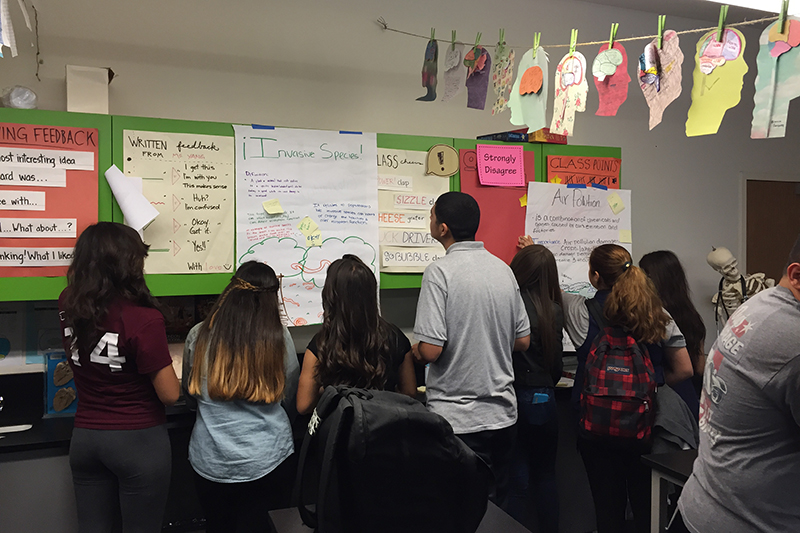
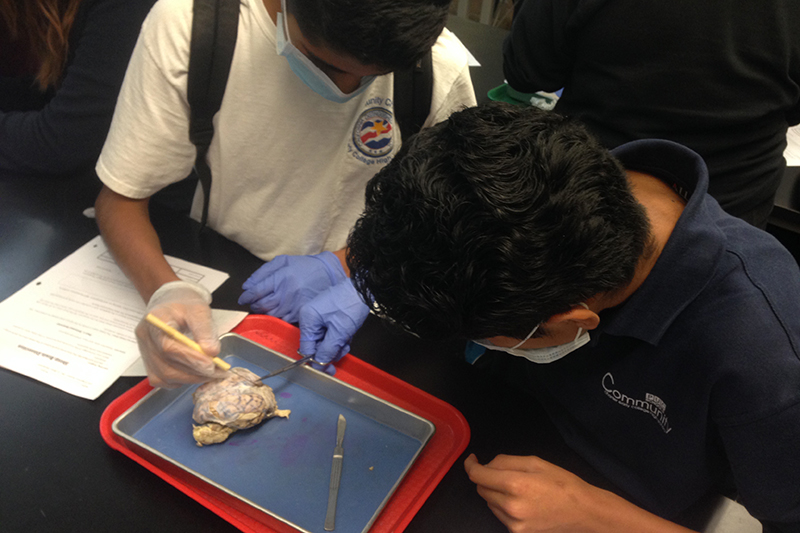
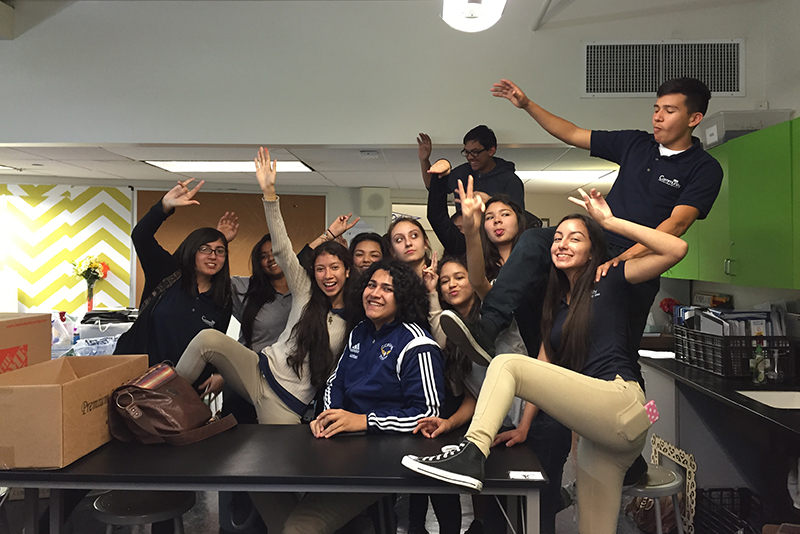
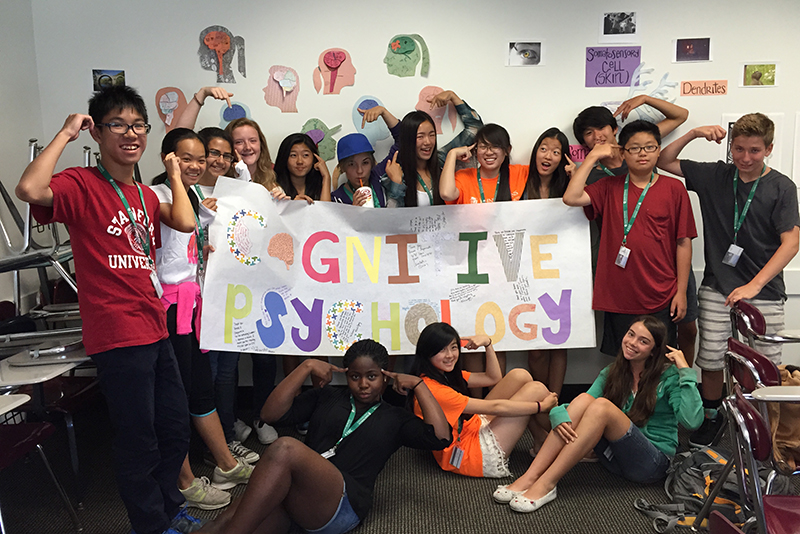
Mentoring
“Where we are born into privilege, we are charged with dismantling any myth of supremacy. Where we are born into struggle, we are charged with claiming our dignity, joy and liberation.”
Mentorship is one of the most important practices of science and a skill I take pride in cultivating. My goals in mentoring students and young researchers is to help them clarify and realize their own goals through rigor- and curiosity-driven engagement with the scientific process. One of my great joys is also mentoring and coaching others in teaching and pedagogy.
Selected mentee projects
- Jennifer Park (independent study): "The Impact of Internet Search Speed on Memory Metacognition"
- Camila Vargas Restrepo (honors thesis): "Judgments of Deceptive Bar Graphs." Camila won the Jerome S. Bruner Award for Excellence in Undergraduate Research.
- Ceren Ebrem (honors thesis): "Mindsets Through Language: Implications of Inferred Mindsets for Student Experience." Ceren won the Karl E. Zener award for her outstanding thesis.
Creating systems that foster excellent mentorship
I believe that great mentors are not born, but made. During graduate school, I took concrete steps to help make excellent mentoring practices more accessible to all. This included, spearheading the creation of the department's first Mentoring Handbook.
In April 2019, I co-developed and co-led four, two-hour sessions focused on the fundamental principles of a good mentoring relationship as part of the Duke Institute for Brain Sciences (DIBS) ongoing Inclusion and Power Dynamics series. The workshops were planned and led in collaboration with Kendra Seaman, a post-doc at the time who is now faculty at UT Dallas.
About my mentorship
- Brenda was a phenomenal resource and source of wisdom for me... Not only was she able to provide me with tangible and action-based tips, but she was constantly checking-in to see if she could lend a hand or offer motivation. Brenda was, and continues to be, extremely intentional in her relationships with her mentees and students, and I have greatly benefitted from her thoughtfulness. (Psy101 Teaching Fellow)
- Brenda has always been an amazing mentor to me... She is a role model for me with her passion for psychology, her strong work ethic, and her never-ending enthusiasm for life. (Mentee)
- Brenda is an amazing mentor to undergraduate students... She works closely with undergraduates and manages to provide both freedom and guidance. (Mentor)
- This workshop was such an incredible resource... You could tell how much they cared about mentoring. I learned so much, and I have gained the confidence to have sometimes difficult conversations with mentees. What I learned here has completely transformed my approach to mentorship, and I feel empowered to continue learning and growing. Mentorship is at the heat of science as an apprenticeship, so I feel like this workshop should be required of every mentor (or anyone who wants to be one)! (Mentoring Workshop Series Attendee)
For past students
How are you? I'm so happy you dropped by. I would love to hear from you. You can send me an email at my personal address: brendaya12 at gmail.com. Some reasons you might want to contact me include:
- Sending a personal update about your life or family
- Asking for a letter of recommendation (see below)
- Asking about careers, colleges, or graduate school
- An interesting article or news that you found
It would be my pleasure to write you a letter of recommendation. Please keep in mind that I won't have very recent knowledge of your academic or personal growth. If you still feel that a letter from me might help you succeed, please provide the following:
- At least 2 weeks notice from when you need it
- An updated resume or other relevant info about you
- What you are applying to and why you're excited about the opportunity
- If relevant, recent grades/academic achievements
- Any additional information that would be helpful for me to know so I can write about it